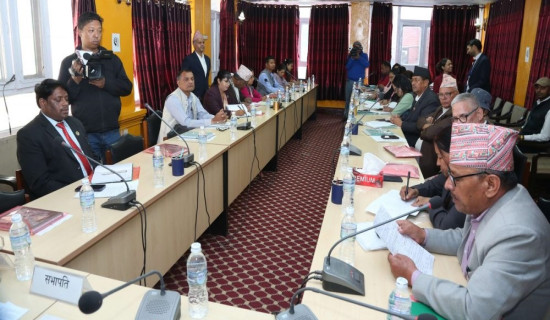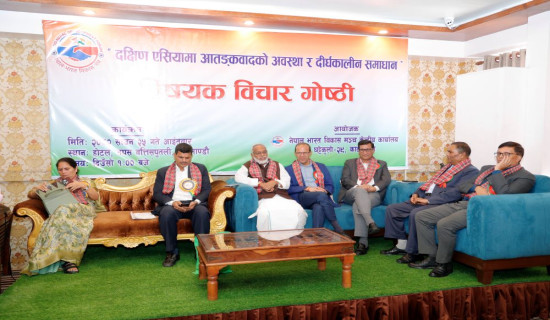- Monday, 11 August 2025
‘NRB's working capital loan guideline will deteriorate industrial environment’
By A Staff Reporter, Kathmandu, Sept. 4: Confederation of Nepalese Industries (CNI) has said that guidelines regarding working capital loans introduced by the Nepal Rastra Bank (NRB) will deteriorate the industrial and business environment.
The Confederation has made it clear that this policy will adversely affect domestic industries and make in Nepal campaign which is also taken ownership of by the government.
According to the suggestion of the Confederation, the provision of the guideline such as ‘it is not mandatory for small borrowers who take loans up to Rs. 5 million, increase the limit to Rs. 20 million from Rs. 10 million’ while the system of audit has been welcomed.
The Confederation has said that guidelines introduced by the NRB would make it easier for small businesses and trades and hamper large and medium industries.
If the guidance does not support large and medium-size industries, it will also have a negative impact on small businesses which are involved at the end of the production and supply chain, said the CNI.
According to the Confederation, after a certain limit, small industries and businesses will not be able to do business on credit and will have transact in cash.
Considering the nature of the revolving working capital loan account industry, the Confederation has demanded for the abolition of the provision that there should be zero arrears for seven consecutive days at some point in the fiscal year.
The Confederation has said that the provisions made under the guidance will reduce the working capital required by the industry and increase the cost.
According to the CNI, such provisions are not even practical in the case of industry and the overall industrial cost will increase and the goods and services will become more expensive.
The Confederation has demanded a reconsideration of the working capital credit limit, which cannot be changed for six months after approval, as it may lead to a situation where the demand cannot be met.
According to the Confederation, it is not practical for banks and financial institutions to check current assets and current liabilities at least once every three months and mandatory emergency inspection once a year.
The Confederation has demanded for the implementation of the Payment Security Act for safe recovery in cases where the seller has sold goods through cheques, bills, VCTS or on credit and such amount has not been recovered.














-original-thumb.jpg)
-original-thumb.jpg)